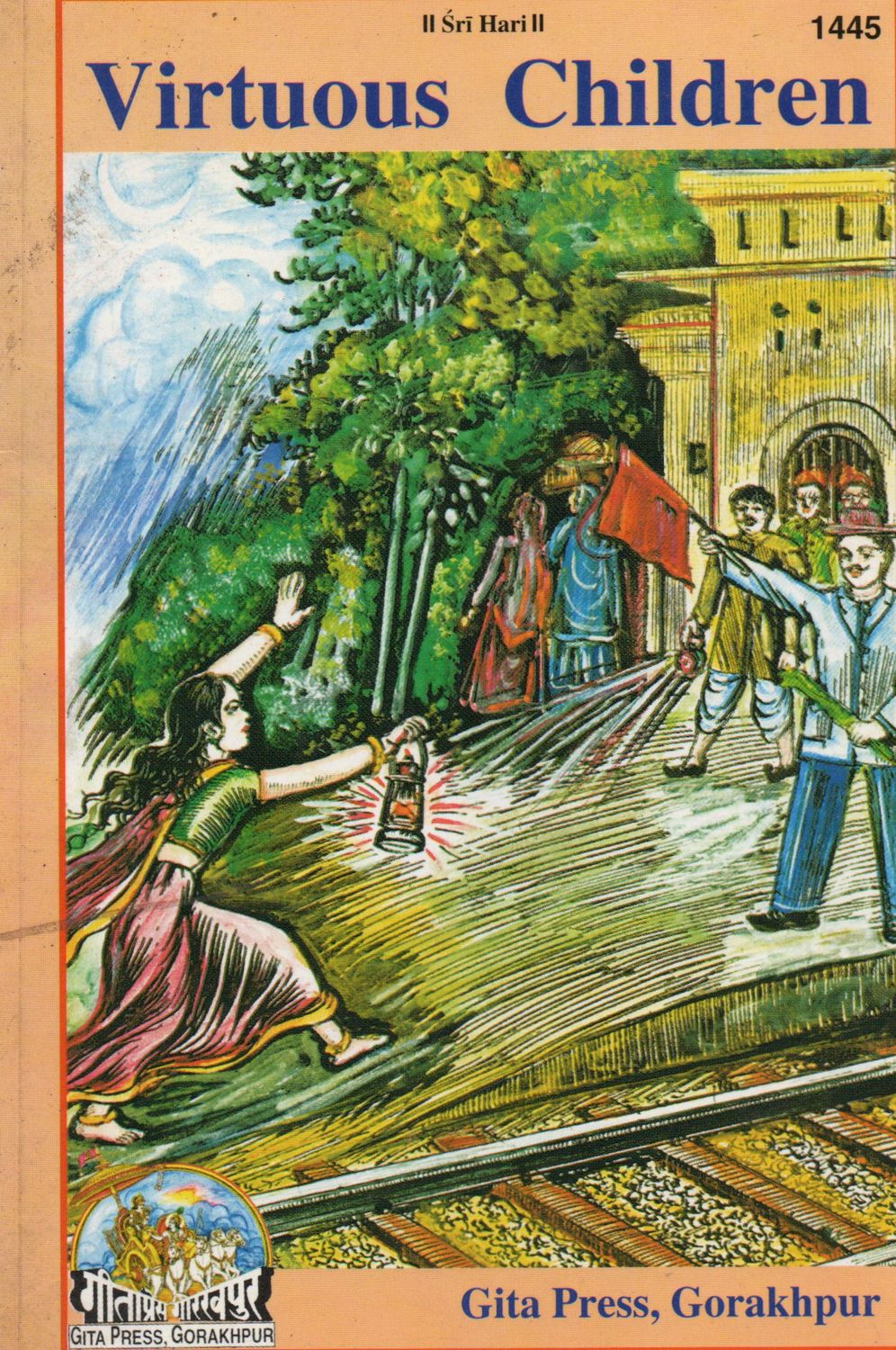Virtuous Children (English) Old Book
In Vedic and many spiritual traditions, the concept of a "virtuous child" is deeply tied to the idea of a child who is not only well-behaved but also spiritually inclined and a source of joy and honor for their parents and society. The Sanskrit term for such a child is "sat-putra" or "su-putra," which literally means "good son/child."
Here are some of the key qualities and a deeper understanding of what constitutes a virtuous child from this perspective:
1. Obedience and Respect
A virtuous child is fundamentally respectful of their parents, elders, and teachers. This respect is not out of fear but out of love and an understanding of the immense sacrifice their parents have made for them. They obey the instructions of their superiors, knowing that this guidance is for their own good. This obedience is considered a primary form of dharma (righteous duty) for a child.
2. Purity of Heart and Mind
A virtuous child is taught to cultivate a pure heart, free from envy, malice, and greed. They are gentle, kind, and compassionate towards all living beings. This purity is often a result of being raised in a spiritual environment and being taught moral principles from a young age.
3. God-Consciousness
The ultimate virtue, according to this tradition, is to be God-conscious. A virtuous child is one who has been taught to love and serve God. This means they are inclined towards spiritual activities like prayer, chanting, and hearing about God's pastimes. They understand that their life has a higher purpose beyond material pursuits.
4. Education and Wisdom
A virtuous child is not only a good student in school but also a seeker of wisdom. They are diligent in their studies and strive to gain knowledge that will help them understand the world and their place in it. They are encouraged to pursue both material education and spiritual wisdom.
5. Sense Control
Children are naturally prone to being led by their senses. A virtuous child, however, is one who is learning to control their desires and senses. This includes being humble and not demanding things, being satisfied with what they have, and learning to manage anger and other negative emotions.
6. A Source of Pride and Salvation for the Family
In Vedic culture, it is believed that a virtuous child, through their good actions and devotion to God, can bring immense honor to their family and even liberate their ancestors. The parents are considered successful not just for raising a financially independent child, but for raising a child who is a true devotee of God. The story of Prahlada Maharaja is a prime example of a virtuous child who, despite being tortured by his demonic father, remained a steadfast devotee of Lord Vishnu. His virtue brought him divine protection and ultimately brought salvation to his family lineage.
In summary, a virtuous child, from a spiritual perspective, is much more than a well-behaved and academically successful individual. They are a spiritual being who, through their character and devotion, brings honor, joy, and spiritual benefit to their family and to all of society.

